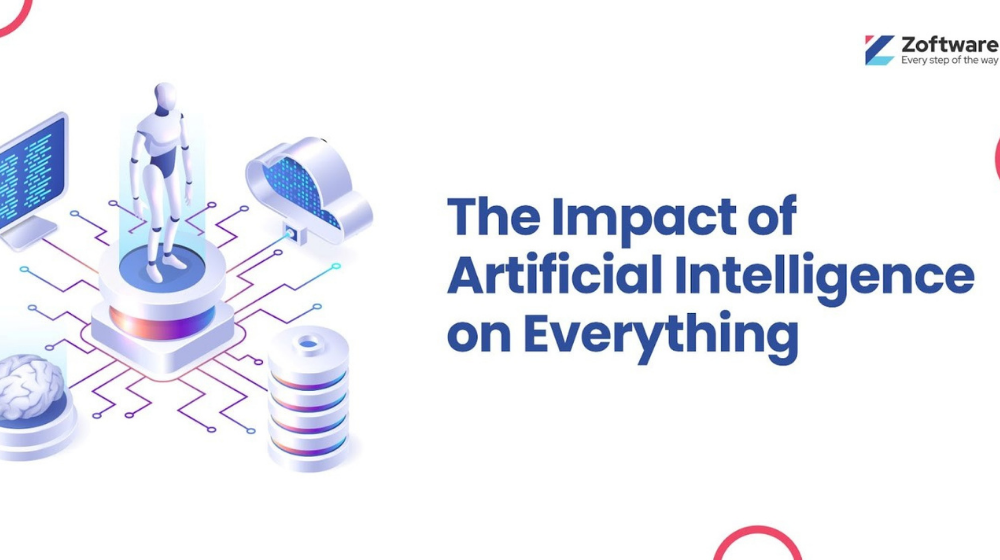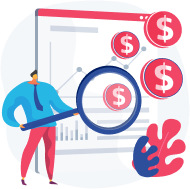Artificial Intelligence (AI) is rapidly transforming the landscape of nearly every industry and aspect of our lives. From healthcare to transportation, finance, and even the arts, the capabilities of AI are not just automating tasks but also enhancing human decision-making and spawning innovations.
We live in an era where machines can learn from vast amounts of data, identify patterns, and make predictions with an accuracy that was once the sole dominance of human expertise.
As we navigate this technological upheaval, it’s clear that AI is no longer the stuff of science fiction. Integrating AI into our daily lives reshapes how we work, play, and interact with the world.
The Foundations of AI
Artificial Intelligence is built on complex theory and diverse applications. Understanding its core requires examining AI’s history, central theories, and pivotal achievements.
- History of AI
The field of AI traces its roots back to the mid-20th century when pioneering figures like Alan Turing began formulating the principles of computational thinking. AI’s history is marked by the transition from theoretical work to practical applications, a journey propelled by both technological advancements and innovative problem-solving.
- 1950s – Early Theoretical Foundations and the Turing Test.
- 1960s – Machine Learning Concepts Introduced.
- 1970s – Expansion into Pattern Recognition and Knowledge Representation.
- 1980s – Commercialization and Early AI Winter.
- 1990s – AI Spring and the Rise of the Internet.
- 2000s-Present – Big Data and Deep Learning Revolution.
- Major AI Milestones
We’ve seen significant milestones that have demonstrated AI’s potential and inspired further research.
- Chess Victory: In 1997, IBM’s Deep Blue defeated world chess champion Gary Kasparov.
- Go Triumph: Google DeepMind’s AlphaGo, in 2016, won against the Go world champion, illustrating the advanced strategic capabilities of AI.
- Language Processing: OpenAI’s GPT-3, launched in 2020, showed sophisticated language understanding, showcasing the power of large-scale language models.
- Autonomous Vehicles: Advancements in self-driving cars continue to push the boundaries of AI in complex, real-world tasks.
AI Technologies
This section explores the core technologies that define the AI landscape. Each technology plays a crucial role in advancing AI capabilities and applications.
- Machine Learning
Machine Learning (ML) is the backbone of AI, enabling systems to learn from data and improve over time. We focus on supervised learning, where we teach models using labeled data, and unsupervised learning finds hidden patterns without labels.
- Supervised Learning: We provide a dataset with input-output pairs to the model, which then learns to map new inputs to outputs.
- Unsupervised Learning: Our models discover inherent structures within a dataset without pre-assigned labels or outcomes.
- Deep Learning
Deep Learning (DL) takes inspiration from the human brain, employing artificial neural networks with multiple layers. These are the specifics:
- Convolutional Neural Networks (CNNs): We utilize CNNs primarily for image and video recognition tasks.
- Recurrent Neural Networks (RNNs): Suited for sequential data, RNNs are essential for applications like speech recognition.
- Natural Language Processing
Natural Language Processing (NLP) is how we equip computers to understand, interpret, and generate human language. Key components include:
- Text Classification: We classify text into predefined categories, which is essential for spam detection and sentiment analysis.
- Machine Translation: Systems are trained to translate text from one language to another with increasing accuracy.
- Robotics and Automation
Robotics and automation represent the physical embodiment of AI technologies. Here’s how we use them:
- Industrial Robots: We deploy these for tasks ranging from assembly to painting in environments where precision and repeatability are paramount.
- Autonomous Vehicles: Our work includes the development of self-driving cars that leverage AI to perceive their surroundings and make decisions.
AI in Daily Life
Artificial Intelligence (AI) has become integral to our daily routines, from simplifying household tasks to personalizing our digital experiences.
- Smart Home Devices
We can now control our home environments with unprecedented ease and efficiency. Smart thermostats like the Nest learn our heating and cooling preferences, adjusting temperatures automatically to save energy. Similarly, smart lights can be programmed to follow our daily schedules or adapt to our activities through voice commands and mobile app integration.
- Personal Assistants
AI-powered personal assistants like Siri and Alexa have become our go-to for setting reminders, playing music, and sourcing information. These assistants learn from our spoken commands and preferences to provide more accurate and personalized responses.
- Recommendation Systems
Online shopping and streaming services like Amazon and Netflix utilize AI to analyze our browsing and purchasing histories. They provide tailored recommendations, ensuring we find products or content aligned with our tastes. The table below outlines how AI enhances these systems:
AI in Different Industries
Artificial Intelligence is revolutionizing industries by optimizing operations, enhancing decision-making, and innovating products and services. Industries are harnessing AI to drive efficiency and improve competitive advantage.
- Healthcare
In healthcare, we’re witnessing AI-enabled diagnostic tools that offer more precise diagnoses by analyzing medical images with superhuman accuracy. AI-powered predictive analytics helps anticipate outbreaks and patient admissions, facilitating better resource allocation.
- Medical Imaging: Enhancing resolution and accuracy.
- Predictive Analytics: Forecasting patient care requirements.
- Finance
AI transforms finance through algorithms that detect fraudulent transactions and automate trading. AI systems process vast amounts of market data to inform investment strategies, while chatbots improve customer service by handling inquiries and transactions.
- Fraud Detection: Real-time transaction monitoring.
- Trading Bots: Automated, data-driven trading decisions.
- Manufacturing
In manufacturing, AI optimizes production lines, reducing waste and increasing throughput. AI-driven predictive maintenance preemptively addresses equipment failures, minimizing downtime.
- Supply Chain Optimization: Streamlined logistics and inventory management.
- Predictive Maintenance: Scheduling repairs before breakdowns occur.
- Transportation
AI is enhancing transportation with smarter logistics and autonomous vehicles. We’re developing self-driving cars, and AI is optimizing routing to reduce fuel consumption and delivery times.
- Autonomous Vehicles: Increasing safety and efficiency.
- Logistics Optimization: Improving route planning and load management.
Ethical Considerations in Artificial Intelligence
We must navigate the complexities of ethical considerations in the artificial intelligence landscape. The focal points are ensuring fairness in AI systems, protecting individual privacy, and addressing the labor market shifts driven by AI technologies.
- AI Bias
AI systems can reflect or amplify human biases if trained on biased data or created without diverse input. For example, an AI hiring tool may inadvertently favor male candidates over female candidates if trained on historical data showing men in more leadership roles.
- Sources of AI Bias
- Training Data: Biased historical data can lead AI to make unfair decisions.
- Algorithm Design: Designers’ unconscious biases may influence AI behavior.
- Evaluation Metrics: What AI considers “successful” outcomes might not be equitable.
- Privacy And Surveillance
AI technologies are exceptionally efficient at processing and analyzing large data sets. This capability raises concerns about how personal data is gathered, used, and stored. Surveillance systems powered by AI can track individuals’ movements and behaviors at an unprecedented scale.
- AI Privacy And Surveillance Key Issues
- Data Collection: Methods of acquiring personal data need clear limits and regulations.
- Data Use: Data should be used transparently, respecting users’ consent and privacy.
- Data Protection: Securing personal data against unauthorized access is paramount.
- Impact on Employment
Our workforce is on the brink of transformation as AI automates tasks traditionally performed by humans. The displacement of jobs by AI calls for a deliberate approach to re-skilling and labor policies to support affected workers.
- Workforce Changes
- Job Displacement: Roles in sectors like manufacturing and customer service are at risk.
- New Opportunities: AI also creates new jobs in tech, supervision, and system maintenance.
- Education and Training: Investment in education and training programs for the evolving job market is essential.
The Future of AI
In the forthcoming years, we anticipate significant breakthroughs in AI that will profoundly impact society and necessitate careful governance.
- Advancements on the Horizon
We are poised to witness transformative advancements in AI capabilities. AI is expected to achieve new proficiency levels in natural language processing, allowing for near-human or even superior performance in understanding and generating language. Machine learning is likely to evolve with systems that require lesser data to make accurate predictions, a development known as few-shot learning.
Upcoming Breakthroughs in AI:
- Natural Language Understanding: Enhanced algorithms for comprehensive context capture.
- Autonomous Systems: More sophisticated robotics with improved adaptability in real-world scenarios.
- AI in Healthcare: Predictive diagnostics and personalized medicine driven by AI integration.
- AI and Global Society
AI’s integration into global society is accelerating, impacting economic sectors, healthcare, and education. We will see AI-driven personalization becoming commonplace, tailoring experiences in shopping and media consumption to individual preferences.
Impact Areas of AI Over The World :
- Employment: Automation of routine tasks and the emergence of new job roles
- Healthcare: improved diagnostics tools and treatment planning
- Education: customized learning experiences and accessibility ehancements
- Regulation and Governance
As AI systems become more pervasive, we understand the necessity for robust regulatory frameworks to ensure responsible AI deployment. The governance landscape will likely be characterized by international standards and best practices focusing on transparency, data privacy, and ethical AI use. Policymaking must keep pace with technological advances to address these challenges successfully.
Key Governance Measures in Artificial Intelligence:
- Data Privacy Regulations: Stricter controls on data use to protect personal information.
- Ethical Guidelines: Ensuring AI decisions are fair and do not discriminate.
- International Cooperation: Harmonization of AI regulations across borders to ensure global consistency.
Conclusion
As we reflect on the immense impact of artificial intelligence, it’s evident that AI is not just a fleeting trend. It is a transformative force reshaping our workplaces, homes, and institutions. We’re witnessing a paradigm shift that challenges our traditional approaches and compels us to rethink our strategies across sectors.
Zoftware is at the forefront of an era where data is paramount, and our capabilities to analyze and learn from it are accelerating. The integration of AI is not without its challenges, yet our collective ingenuity and foresight can guide us in leveraging AI to benefit society broadly.Sign up today to find the best software for your company!





